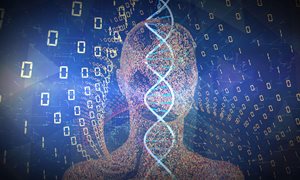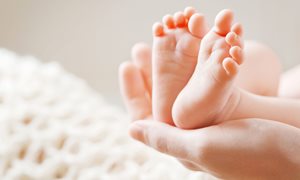
TURBO GRANTS FOR FOUR MEDICAL-TECHNICAL RESEARCH PROJECTS
Four TURBO grants were last Tuesday awarded to researchers of the University of Twente (TechMed Centre) and RadboudUMC for innovative research on medical technology. The grants will enable the researchers to jointly develop their innovative idea and pursue follow-up funding.
The four research projects approved are:
Microgel technology to control osteoclast formation and function (microCLAST)
Jeroen Leijten (UT) and Jeroen van den Beucken (Radboudumc)
Our bones are constantly formed and broken down in processes known as ‘bone formation’ and ‘bone resorption’. The health and regeneration of our bones rely on the balance between these two processes. Osteoclasts, a type of bone cells, are known for their role in bone resorption, but recent findings indicate that they also appear to play a role in bone formation. In the microCLAST project, Jeroen Leijten (UT) and Jeroen van den Beucken (Radboudumc) will develop a method for generating osteoclasts by combining microfluidics with cell biology. The project will eventually provide a toolbox for the development of in vitro bone models and constructs for bone regeneration. In addition, this toolbox will be instrumental to unravel the function of osteoclasts in healthy and pathological bone, and to investigate whether we can use osteoclasts for bone regeneration therapy with a patient's own cells.
Organise your health innovations
Erik Koffijberg (UT) and Janneke Grutters (Radboudumc)
Every year, many new health innovations are developed in the Netherlands and worldwide. But even those proven to be cost-effective are often not implemented successfully due to organisational aspects (e.g. available personnel, logistics, and financial considerations). With this project, Erik Koffijberg (UT) and Janneke Grutters (Radboudumc) will investigate five health innovations, covering a wide range of technologies, to see what the role and impact of organisational aspects is on the adoption and implementation of health innovations. Next to this, they will also explore how addressing the different organizational aspects can increase the benefits of the innovations in clinical practise. The study will therefore provide a concrete support framework for assessing health innovations and how they can best be utilised in a healthcare setting.
Growing bone-on-chip
Pascal Jonkheijm (UT) and Nico Sommerdijk (Radboudumc)
Organ-on-chip and organoids (or ‘mini-organs’) are promising models for investigating physiological and pathological processes in tissue. In bone research, however, the development of these models is lagging behind. With this TURBO project, Pascal Jonkheijm (UT) and Nico Sommerdijk (Radboudumc) aim to change that. The aim is to examine healthy bone formation, specifically the role of stem cells in bone structure and organisation. With this in mind, they will develop an organoid-on-chip model to study patient-specific mechanisms of genetic bone disorders. It will also enable the effects of potential therapies to be studied. This project combines the University of Twente’s knowledge of organ-on-chip development with Radboud University Medical Center’s expertise in live-imaging technology.
A translational pipeline to better understand blood-brain barrier defects in autism and beyond – from Drosophila to the BBB on-chip (TurBBBo)
Loes Segerink (UT) and Annette Schenck (Radboudumc)
Almost three percent of children in the Netherlands have autism or a related disorder. The precise causes are still not entirely clear. Recent research on fruit flies to examine the genetic risk factor for autism suggests that the blood-brain barrier plays a central role in the etiology of sleep disturbances, and in other features widely present in autism and related neurodevelopmental disorders. As research on patients would be too invasive, Loes Segerink (UT), Kerensa Broersen (UT) and Annette Schenck (Radboudumc) are adopting a different approach. They aim to develop an organ-on-chip model of the blood-brain barrier to simulate the human disease and gain a deeper understanding of autism pathology and the physiological regulation of sleep.
Best pitch
Next to the four TURBO grants, Jakub Sikorski (UT) and Michiel Warlé (Radboudumc) won the prize for the best pitch for their project “ICECReAM: Infrastructure for Cardiovascular trEatment using Clinically-Relevant Applied Microrobotics”. This project investigates how challenges associated with the minimally-invasive treatment of vascular diseases can be overcome using robotic instruments, thereby enabling surgical protocols, which are safer and more effective that current state-of-the-art.
About TURBO
The TURBO program started in 2017 and is an acronym for 'Twente University Radboudumc Opportunities.' It ties in with the TOPFIT program, which gives further effect to the ‘Concepts for a Healthy Life' innovation profile of the East region in the Netherlands. The purpose of a TURBO grant is to prepare a project for acquiring larger, external funding, such as those provided by national and European funds and companies that are active in the field of health care and technology.
-
Want to know more about these subjects? Click on the buttons below for more news.
Related news items

T-Guard can reset immune system
1 December 2021 For 20 years, the Nijmegen based Radboudumc spin-off company Xenikos has been working on a drug that can reset the immune system. This reset will save lives of seriously ill patients. Now, after years of hard work, the moment of truth has arrived for T-guard. go to page
RIMLS awards call for nominations
19 October 2021 RIMLS awards several prizes to stimulate and honor our (young) researchers. Upcoming awards are Supervisor of the Year, Best Master Thesis, Best Publication, Best Image and more. Send your nominations now before 24 November 2021. go to page
Nijmegen literally puts Digital Health on the map Flourishing ecosystem gets its own interactive overview
22 July 2021 Digital Health is thriving in the Nijmegen region, where it contributes to better care and health and also creates jobs. To bring developers and end users even closer together, The Economic Board and the Radboudumc are introducing the Interactive Digital Health map. go to page
Newborn screening in sight through the discovery of novel disease biomarkers by new technique
8 July 2021New biomarkers that can be used in the newborn screening protocol, also known as the neonatal heel prick, Karlien Coene and colleagues joined forces with scientists at the Radboud University’s FELIX laser laboratory. They published their findings in The Journal of Clinical Investigation.
go to page
Save the date for Radboud New Frontiers 2018: Betere zorg, netwerkzorg?
17 January 2018 After standard care, standardized care, and personalized care, network care will be care 4.0. But how exactly do you do that? Should we create new structures for it or is it just a matter of trust and ability to step back? go to page
